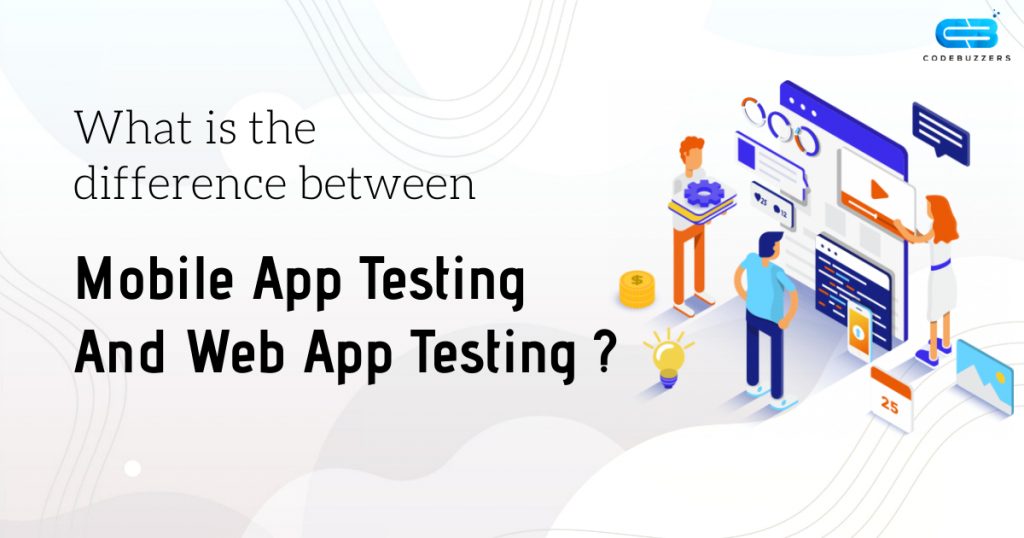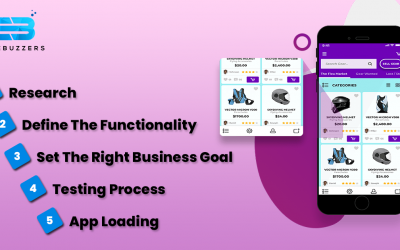The Need of Mobile App Testing and its difference from Web Testing
We are living in a mobile era. There is no doubt that the number of mobile users today is greater than what it was 5 years ago, and with the development in digital technology, a future surge in this trend is highly predicted.
And with the revolution in the e-commerce sector, for a business to succeed it is essential to have omnipresence in every platform- from big monitor to small mobile screen. It is necessary to understand that a section of your consumer may prefer shopping on the desktop while the others may wish to have it on their fingertip.
However, the debate between the preference of mobile app and website cannot be put to an end by choosing any one of the two. As, the penetration of smartphones of some kind is increasing, and it is expected to swell further in 2021, a combination of both a mobile-friendly website and a mobile app could seem more preferable.
That being said, every business should understand its objectives before opting for an app and/ or website. On one hand, where a mobile-friendly website can enable establishing customer relationship, a mobile app can deepen it further. As a result more and more companies are focusing on mobile app development. However, enterprises need to understand to what extent they want to take their online business.
Advantages of mobile apps over websites:
To categorise precisely, there are 3 major kinds of applications, namely- Desktop Application, Mobile Application, and Web Application. Although the other two still exist on a large scale, the penetration of mobile application, via mobile app, has gained some serious thrust in the last few years.
Here it could be great if we look at some of the advantages of a mobile app over other applications:
- Offers customers to delve deeper into the offerings of the business.
- Perform faster and are more responsive than most websites
- More interactive
- Enterprises can use geolocation of the customers
- Easy to send notifications
- Track customers preferences and offer a personalised experience
If you are looking for better and engaging interaction with the customers, along with driving loyalty then the mobile app is the way to go! While companies jump in the race of mobile app development, what they forget is about testing them, which could fix any bugs or issues.
The following section(s) walk you through the importance of mobile app testing and the way it is different from website testing.

The line of difference between mobile app testing and the testing of web app
Whatever the platform may be, the sole aim of mobile app development companies rest on delivering an uninterrupted and smooth user experience. So, before diving into the difference between mobile app testing and web app testing let’s go through some of the factors that are common in them:
- Functionality testing
- Usability testing
- Performance testing
- Certification testing
- Recovery testing
- Localization testing
- Change- Related testing
That being said, the testing of these two applications differs dramatically in terms of their compatibility, storage, internet connectivity, and user interaction. Let’s delve deeper!
- Compatibility– The testing process of mobile and web app differs when it comes to their compatibility. While testing web apps, developers do not need to run the apps on a different desktop. However, the former needs to be tested on different mobile devices to analyse their behaviour with different hosts. Also, factors like screen size and capacity limitations are needed to be considered before running mobile apps.
- Storage- Some mobile device may run on small RAM with less capacity like 20GB SSDs, which can limit the test operations. On the other hand, the vast memory and storage capacity of modern web browsers make it much easier for developers to run app testing faster.
- Internet connectivity- Both web and mobile app depend on internet connection. However, there is a small difference here- while web app testing goes completely useless without any internet connection, native mobile or hybrid mobile app may have some offline functionalities. So, it is necessary to check the way they behave when offline to ensure a smooth interaction with the consumers.
- User interaction- Desktop often limits the audience to the click and scroll feature using a mouse, which may seem outdated. On the other hand, mobile devices offer multiple options for tapping, swiping, pinching, etc. So, developers need to add all these features while testing mobile apps.
The final thought
The bottom line of whatever we talked about is testing the usability and functionality of applications. Since smartphones have penetrated at a faster rate, businesses are required to pay specific attention to testing while mobile app development before launching them. CodeBuzzers is one such company that makes it possible to consider all the necessary factors while developing and testing mobile application(s) for you.



